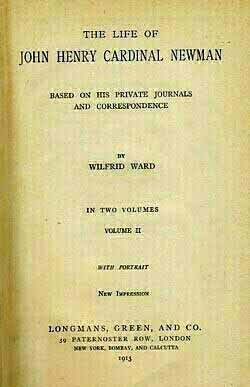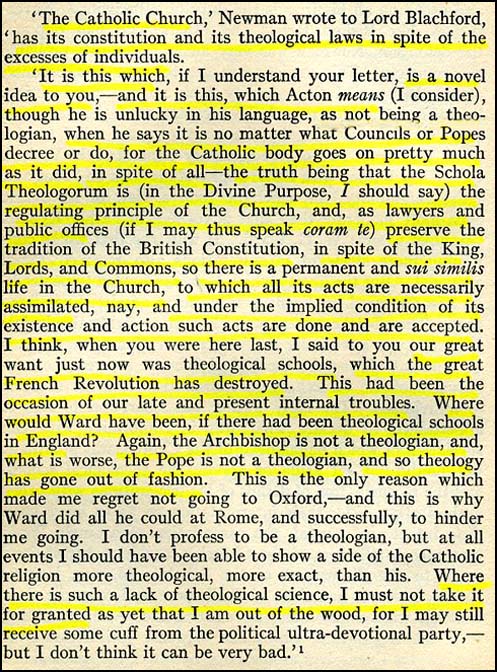In 1871, after the First Vatican Council had been suspended, Josef Fessler, Bishop of Sankt Polten, Austria, who had been the secretary of that same Council in Rome, wrote a book titled The True and False Infallibility of the Popes, with the approbation of Pius IX.
The work aimed to answer attacks on the recent dogma of Papal Infalibillity coming from the German-speaking world, more specifically, a pamphlet by Dr. Schulte, professor of Canon Law at Prague. The original edition was in German, and it was soon translated into French.
Although the explanations of the author were in perfect accordance with the mind of the Pope and the definition of the Council - to the point that many persons saw the book as an expression of the Italian Ultramontane position - Newman pretended that Bishop Fessler's exposition was an indirect censure of the Ultramontanes for what he qualified as excesses in the defense of Infallibility. A consequence of this biased spin was the pretense that the work vindicated the moderate liberal theses on infallibility and gave right of citizenship to their proponents, himself included.
Based on this false interpretation, Newman asked his beloved friend Fr. Ambrose St. John to translate the work into English. The latter took up the task with such ardor that he had a stroke and died before finishing it. Nonetheless, the English translation that appeared in 1875 bears his name.
Newman then pretended - a step further in the same fabrication - that Fessler' work represented the signal for the start of a theological debate on what the dogma really meant. He also defended that only the ensemble of theologians can decide what doctrine must be believed by the Church.
Thus, neither the Pope nor the ensemble of the Bishops should have the final word on what the definition signified, but rather this should be left to the theologians. Besides being a doctrinal error, it seems very much like a political sabotage of the dogma of Papal Infallibility.
In parallel, it is interesting to note that in the letter presented below, which Newman wrote "a few years after the Council's suspension," he was still defending Lord Acton, the radical Liberal Catholic whom he pretended to oppose.
This document is in The Life of John Henry Cardinal Newman by Wilfrid Ward, vol. II, pp. 374.


|
|
